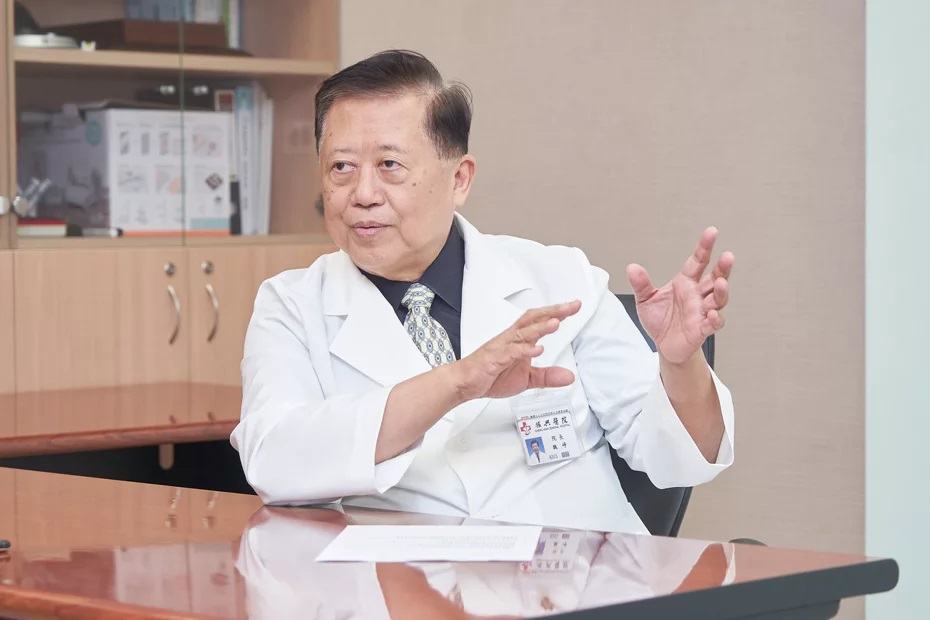Leading the International Trend of Integrating Cardiovascular Surgery and Cardiology Teams, Superintendent Prof. Jeng Wei of Cheng Hsin General Hospital Takes the Forefront

Superintendent Jeng Wei is deeply committed to fostering collaboration between the cardiovascular surgery and cardiology departments at Cheng Hsin General Hospital. With an unwavering focus on patient-centered care, his primary goal is to deliver the best possible treatment and care. Through these concerted efforts, Cheng Hsin General Hospital strives to provide exceptional medical expertise and a warm and compassionate environment.”
With the rapid advancement of medical technology, new medical materials and treatment methods have blurred the boundaries between internal medicine and surgical specialties. Led by Superintendent Jeng Wei, Cheng Hsin General Hospital remains at the forefront of this trend, proactively integrating cardiovascular surgery and cardiology to provide the best possible care for patients. With a patient-centered approach, Cheng Hsin General Hospital strives to deliver top-notch treatments, making it a compassionate healthcare institution.
Dr. Jeng Wei explains that during the early stages of medical development, most treatments were focused on internal medicine, primarily medication-based. Surgical procedures, on the other hand, initially stemmed from barbers who would use razors to remove affected areas from patients’ bodies. During that time, physicians were not specialized in specific disciplines, and both internal and surgical approaches were used to address various illnesses simultaneously. As medical advancements progressed, the fields of internal medicine and surgery became more specialized and separate.
Dr. Jeng Wei provides examples, highlighting how medical advancements have led to changes in treatment methods. Some surgical procedures are gradually being replaced by less invasive interventions, prompting surgeons to adapt their approach. Similarly, internal medicine physicians, who traditionally focused on prescribing medication, are now increasingly involved in invasive procedures such as catheter-based interventions, expanding the scope of interventional therapies.”
“However, integrating internal medicine and surgery can be quite challenging, and many hospitals have struggled to achieve successful integration,” says Dr. Jeng Wei. The main reason is that if the responsibilities of internal medicine and surgery become too ambiguous and ill-defined, the pursuit of personal interests and achievements may overshadow treatment plans, leading to a competitive environment that can potentially disadvantage patients. Recognizing this, Cheng Hsin General Hospital has embraced the integration of cardiovascular surgery and cardiology, encouraging a collaborative approach where everyone works together to provide comprehensive care and achieve the best outcomes for patients.
To break down the traditional barriers between cardiovascular surgery and cardiology and minimize the competitive dynamics between the two departments, Dr. Jeng Wei has established a weekly meeting requirement of at least one hour, where the teams from both departments come together to discuss treatment plans and foster consensus. In some cases, internal medicine and surgery physicians are even assigned to perform procedures together, such as catheter-based heart valve replacements or repairs, leveraging their different areas of expertise and techniques to ensure the best possible results for patients. Dr. Jeng Wei emphasizes that the guiding principle for patient treatment is to use the most effective approach. As long as the decision-making process is fair and impartial, there should be no objections.
“In my pursuit of delivering better healthcare quality to patients, I often find myself needing to be tough and even facing criticism from others,” says Dr. Jeng Wei. He acknowledges that inadequate performance in heart surgeries can be life-threatening, and patients do not have the luxury of a second chance. Therefore, his expectations for cardiovascular surgery and cardiology are particularly stringent. In addition to following established principles, he insists on comprehensive discussions and explanations with patients and their families regarding treatment options and methods. Dr. Jeng Wei considers this an essential responsibility of physicians. By achieving excellence in heart care, the satisfaction of patients increases, leading to positive word-of-mouth referrals.
Interdependence between cardiovascular surgery and cardiology is crucial in medical practice. Let’s take the case of a colleague who required a cardiovascular stent placement due to coronary artery blockage. However, due to the calcification of their blood vessels, the risk associated with the stent placement procedure was significantly higher. Dr. Wei, being aware of the potential complications, proactively consulted the cardiology team to determine if the presence of a surgeon was necessary during the procedure. The patient experienced a ruptured blood vessel during the intervention, resulting in severe bleeding and shock. Fortunately, Dr. Wei was present and promptly performed a cardiovascular bypass surgery, saving the colleague’s life.
Dr. Wei emphasizes that the occurrence of blood vessel rupture during a cardiovascular stent placement procedure is relatively low, around one in a thousand cases. Without immediate access to cardiac surgical intervention, the colleague’s life would have been at risk. This case underscores the critical importance of collaboration between cardiovascular surgery and cardiology, necessitating a strong team-oriented approach.
Dr. Chang Chung-Yi, Director of the Cardiovascular Surgery at Cheng Hsin General Hospital, emphasizes that the goal of treating any disease is not merely achieving short-term success or finding a solution solely in post-operative care. It is essential to seek long-term effectiveness. However, the general public often lacks a comprehensive understanding of the risks associated with different surgical procedures. Therefore, it is crucial to develop a treatment plan and engage in extensive communication and explanation with patients before surgery.
Dr. Tsao Tien-Ping, Director of Cardiology at Cheng Hsin General Hospital, emphasizes the patient-centered approach in evaluating and assessing cardiac conditions for both cardiology and cardiovascular surgery. During the evaluation process, factors such as the patient’s age, the severity of the condition, the presence of comorbidities, and the risk associated with surgical procedures are taken into consideration. These discussions aim to determine the most suitable and optimal treatment approach for each patient, reflecting the hospital’s commitment to patient-centered team-based care.
Source of the article: https://health.udn.com/health/story/5977/7107728




 Mon~ Fri 8am~5pm.
Mon~ Fri 8am~5pm.




